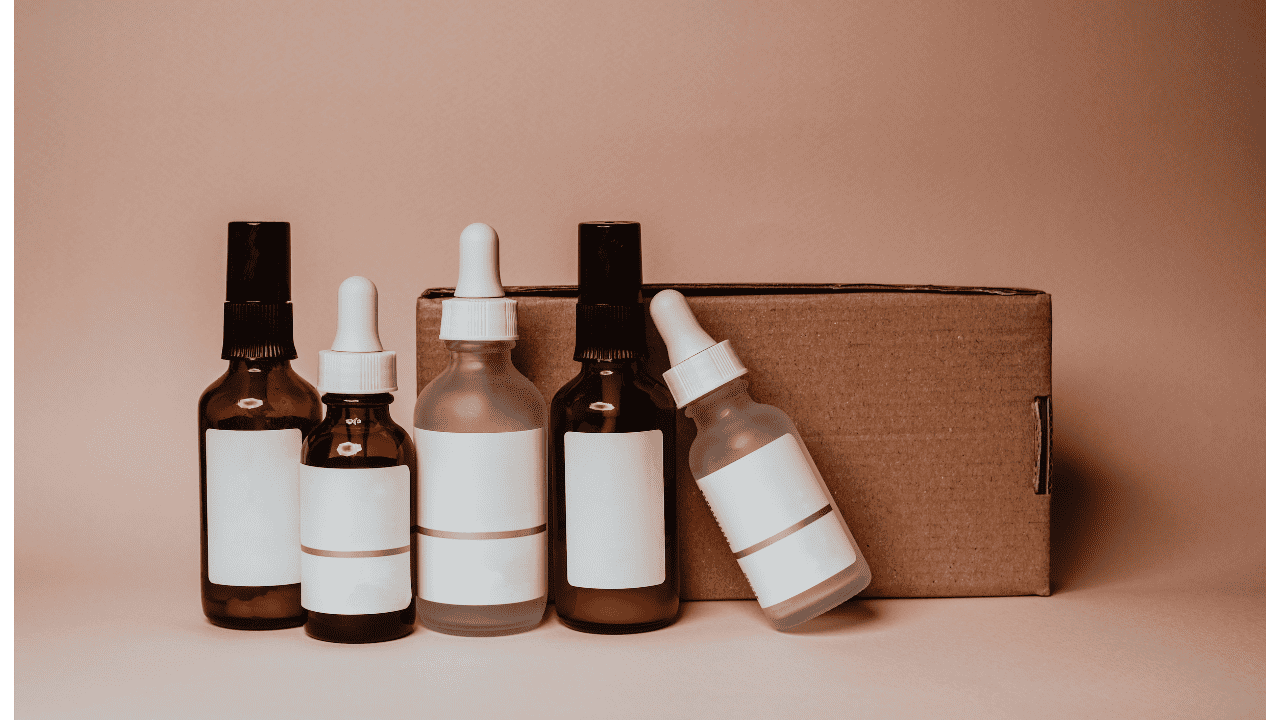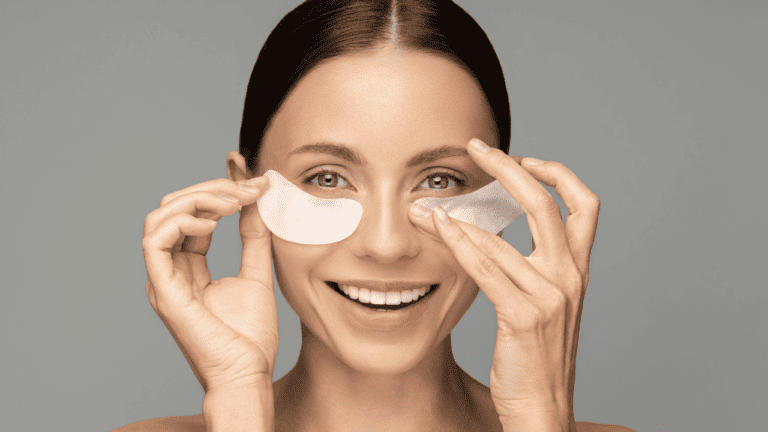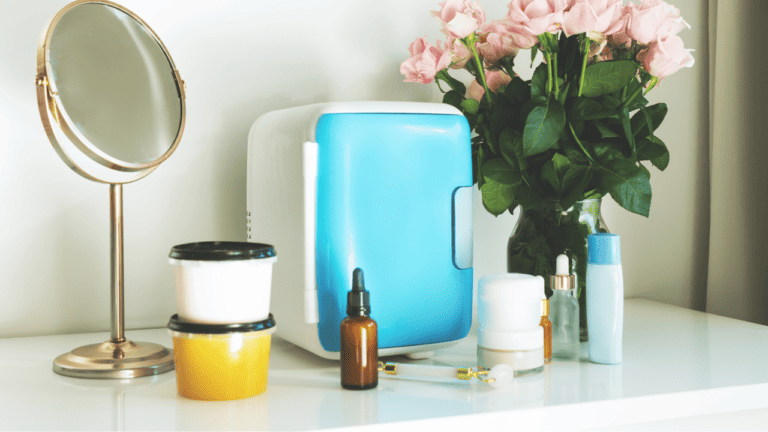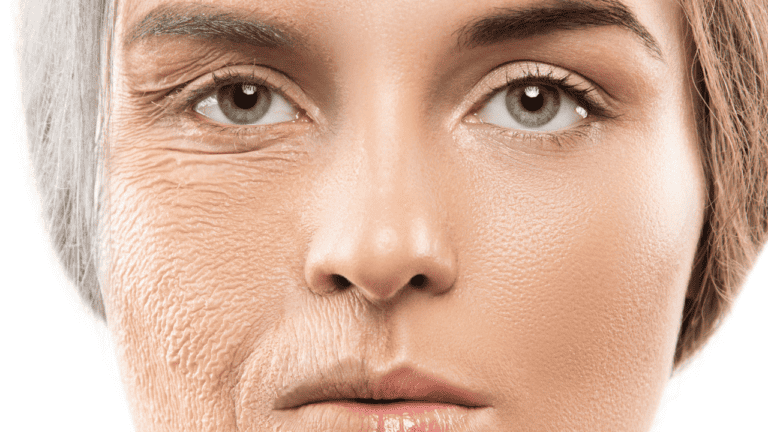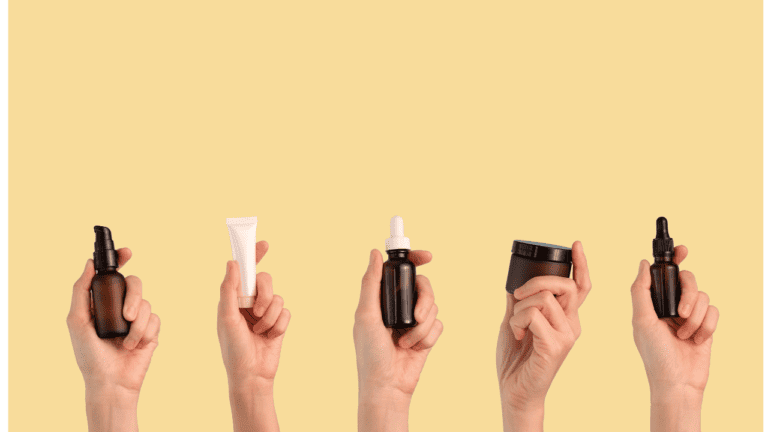Skincare products are a daily necessity for many people, whether it’s to moisturize dry skin or control oily skin. However, some people may experience breakouts, pimples, or acne after using certain skincare products. This can be frustrating and confusing, especially if the product was marketed as being beneficial for acne-prone skin.

While skincare products can help manage acne, they can also cause it. The ingredients in some products can clog pores, irritate the skin, or disrupt the skin’s natural balance. This can lead to breakouts, pimples, or acne. Understanding the relationship between skincare products and acne can help individuals make informed decisions about their skincare routine and avoid products that may trigger breakouts.
Key Takeaways
- Skincare products can both help manage acne and cause it.
- Certain ingredients in skincare products can clog pores, irritate the skin, or disrupt the skin’s natural balance, leading to breakouts, pimples, or acne.
- Understanding how skincare products can cause acne can help individuals make informed decisions about their skincare routine and avoid acne-triggering products.
Understanding Acne

Acne is a common skin condition that affects people of all ages and genders. It is characterized by the presence of pimples, blackheads, whiteheads, and other types of blemishes on the skin. Acne can occur on any part of the body, but it is most commonly found on the face, neck, chest, and back.
What Causes Acne?
Acne is caused by a combination of factors, including excess oil production, dead skin cells, bacteria, hormonal changes, and inflammation. The skin has tiny holes called pores that connect to oil glands located under the skin. These glands produce an oily substance called sebum that helps to keep the skin moisturized.
Sometimes, dead skin cells and excess oil can clog the pores, leading to the formation of pimples. When bacteria enter the clogged pores, they can cause inflammation and infection, resulting in more severe forms of acne. Hormonal changes, such as those that occur during puberty, can also contribute to the development of acne.
Types of Acne
There are several types of acne, each with its own characteristics and treatment options. The most common types of acne include:
- Whiteheads: These are small, raised bumps that occur when the pores are clogged with oil and dead skin cells. They are usually white or yellow in color.
- Blackheads: These are similar to whiteheads, but they are open to the surface of the skin and appear black or dark in color.
- Papules: These are small, red bumps that are tender to the touch.
- Pustules: These are similar to papules, but they contain pus.
- Cysts: These are large, painful bumps that are filled with pus and can cause scarring.
In conclusion, acne is a common skin condition that can be caused by a variety of factors. Understanding the causes and types of acne can help individuals to better manage their condition and find effective treatment options.
How Skincare Products Can Cause Acne

Skincare products are meant to improve the appearance and health of the skin, but they can sometimes have the opposite effect. Acne is a common skin condition that affects many people, and skincare products can be one of the factors that contribute to its development. In this section, we will explore how skincare products can cause acne, including the role of comedogenic ingredients, irritation and allergic reactions, and overuse and interaction of products.
Comedogenic Ingredients
Comedogenic ingredients are substances that have a tendency to clog pores and cause acne. These ingredients can be found in many skincare products, including moisturizers, sunscreens, and makeup. Some common comedogenic ingredients include coconut oil, cocoa butter, and algae extract. When these ingredients are applied to the skin, they can mix with sebum and dead skin cells to form a plug in the hair follicle, leading to the development of acne.
To avoid comedogenic ingredients, individuals with acne-prone or sensitive skin should look for products labeled as non-comedogenic. These products are formulated to be less likely to cause acne and are generally better suited for individuals with acne-prone or sensitive skin.
Irritation and Allergic Reactions
Irritation and allergic reactions can also contribute to the development of acne. Skincare products that contain harsh chemicals or fragrances can irritate the skin and cause inflammation, which can lead to the development of acne. Additionally, some individuals may be allergic to certain ingredients in skincare products, which can also lead to the development of acne.
To avoid irritation and allergic reactions, individuals with acne-prone or sensitive skin should look for products labeled as hypoallergenic or fragrance-free. These products are formulated to be less likely to cause irritation or allergic reactions and are generally better suited for individuals with acne-prone or sensitive skin.
Overuse and Interaction of Products
Overuse and interaction of products can also contribute to the development of acne. Using too many skincare products at once can overwhelm the skin and cause irritation, which can lead to the development of acne. Additionally, some skincare products may interact with each other, causing an increase in oil production or inflammation, which can also lead to the development of acne.
To avoid overuse and interaction of products, individuals with acne-prone or sensitive skin should limit the number of products they use and avoid using multiple products that contain the same active ingredients. Additionally, individuals should be careful when introducing new products into their skincare routine and should monitor their skin for any signs of irritation or acne.
Identifying Acne-Triggering Skincare Products

When it comes to skincare, not all products are created equal. Some products can cause acne breakouts, especially if they contain certain ingredients. In this section, we will discuss how to identify acne-triggering skincare products.
Reading Labels and Ingredients
One of the most important things to do when shopping for skincare products is to read the labels and ingredients. Look for products that are labeled “non-comedogenic,” which means that they won’t clog your pores. Avoid products that contain ingredients that are known to cause acne breakouts, such as:
- Acids: Salicylic acid, glycolic acid, and lactic acid are common ingredients in skincare products, but they can also be harsh on the skin and cause irritation and breakouts.
- Alcohols: Some alcohols, such as SD alcohol, can be drying and irritating to the skin, which can lead to acne breakouts.
Patch Testing for Sensitivity
Another way to identify acne-triggering skincare products is to do a patch test for sensitivity. This involves applying a small amount of the product to a small area of skin, such as behind the ear or on the inner arm, and waiting 24-48 hours to see if any irritation or breakouts occur. If there is a reaction, it’s best to avoid using the product on the face.
In conclusion, identifying acne-triggering skincare products is an important step in preventing acne breakouts. By reading labels and ingredients and doing patch tests for sensitivity, you can find products that work well for your skin and won’t cause breakouts.
Role of Professional Guidance

When it comes to skincare, consulting a dermatologist can be invaluable. A board-certified dermatologist has the knowledge and expertise to diagnose and treat a variety of skin conditions, including acne. They can help determine the root cause of acne and recommend appropriate treatments.
Consulting a Dermatologist
A dermatologist can help determine the best skincare regimen for an individual’s specific skin type and acne severity. They can recommend products that are non-comedogenic, meaning they won’t clog pores and cause acne. Additionally, they can advise on the use of topical treatments, such as retinoids, benzoyl peroxide, and salicylic acid, which are commonly used to treat acne.
In some cases, a dermatologist may prescribe oral medications, such as antibiotics or isotretinoin, to treat severe acne. These medications should only be used under the guidance of a doctor, as they can have side effects and interact with other medications.
Understanding Prescribed Treatments
It’s important to understand the prescribed treatments and follow the dermatologist’s instructions carefully. Overuse or misuse of skincare products can actually exacerbate acne. For example, using too much benzoyl peroxide can dry out the skin and cause irritation, leading to more breakouts.
In addition to following the dermatologist’s instructions, it’s important to maintain a consistent skincare routine. This includes washing the face twice a day with a gentle cleanser, using non-comedogenic moisturizers, and wearing sunscreen daily.
Overall, seeking professional guidance from a dermatologist can be a key component in managing acne and preventing further breakouts. By working with a doctor to develop a personalized skincare regimen, individuals can achieve clearer, healthier skin.
Preventative Skincare Practices
Acne is a common skin condition that can be caused by a variety of factors, including genetics, hormones, and lifestyle. While skincare products are often used to treat acne, they can also contribute to its development. However, with proper skincare practices, it is possible to prevent acne from occurring.
Establishing a Suitable Skincare Routine
Establishing a suitable skincare routine is key to preventing acne. This includes using noncomedogenic products, which do not clog pores. Cleansers and moisturizers should be used daily, with a focus on gentle, fragrance-free options. It is important to avoid over-washing the face, as this can strip the skin of its natural oils and lead to dryness and irritation.
In addition to daily skincare, it is also important to consider using acne-fighting products as needed. These may include spot treatments, toners, and exfoliants. However, it is important to use these products sparingly and according to their instructions, as overuse can lead to dryness and irritation.
Lifestyle and Dietary Considerations
In addition to skincare, lifestyle and dietary considerations can also play a role in preventing acne. Maintaining good hygiene, such as washing the face and hands regularly, can help prevent the buildup of bacteria and oil on the skin. Additionally, avoiding touching the face can help prevent the spread of bacteria and oil.
Diet can also play a role in preventing acne. Eating a balanced diet that is rich in fruits and vegetables can help provide the body with the nutrients it needs to maintain healthy skin. Avoiding processed foods and sugary drinks can also help prevent acne, as these can contribute to inflammation and oil production in the skin.
Overall, preventative skincare practices are essential for preventing acne. By establishing a suitable skincare routine and considering lifestyle and dietary factors, it is possible to maintain healthy, clear skin.
Treatment Options for Acne
Acne can be treated with various over-the-counter (OTC) solutions, prescription medications and topicals, and advanced dermatological procedures. The severity and type of acne determine the treatment options.
Over-the-Counter Solutions
OTC solutions are usually the first line of treatment for mild to moderate acne. They contain active ingredients like salicylic acid and benzoyl peroxide, which are effective in reducing inflammation and killing acne-causing bacteria. Salicylic acid is a beta-hydroxy acid that helps unclog pores and remove dead skin cells. Benzoyl peroxide is an antibacterial agent that helps reduce the number of bacteria on the skin.
OTC solutions are available as creams, gels, lotions, and face washes. They are easy to use and can be purchased without a prescription. However, it is essential to follow the instructions carefully to avoid skin irritation and dryness.
Prescription Medications and Topicals
Prescription medications and topicals are recommended for moderate to severe acne. They contain active ingredients like retinoids and antibiotics, which help reduce inflammation, unclog pores, and kill acne-causing bacteria.
Retinoids are derivatives of vitamin A and are effective in treating acne by regulating skin cell turnover. They are available as creams, gels, and lotions. Adapalene is a retinoid that is available over-the-counter and by prescription.
Antibiotics are used to treat acne when there is an infection. They work by killing the bacteria that cause acne. They are available as topical creams, gels, and lotions, as well as oral tablets and capsules.
Advanced Dermatological Procedures
Advanced dermatological procedures are recommended for severe acne that does not respond to other treatments. They include procedures like chemical peels, laser therapy, and photodynamic therapy.
Chemical peels involve applying a chemical solution to the skin to remove the top layer of dead skin cells. Laser therapy involves using a laser to target and destroy the sebaceous glands that produce oil. Photodynamic therapy involves using a photosensitizing agent and a light source to kill acne-causing bacteria.
In conclusion, there are various treatment options available for acne. OTC solutions are usually the first line of treatment for mild to moderate acne, while prescription medications and topicals are recommended for moderate to severe acne. Advanced dermatological procedures are recommended for severe acne that does not respond to other treatments. It is essential to consult a dermatologist to determine the best treatment option for an individual’s specific type and severity of acne.
Dealing with Acne Scars
Acne scars can be a frustrating reminder of past skin conditions. They can be a result of severe acne or even a mild breakout. Scarring occurs when the skin tissue is damaged, and the body produces collagen to repair the damage. However, the repair process can leave a scar behind.
Types of Acne Scarring
There are two types of acne scarring: atrophic and hypertrophic. Atrophic scars are the most common and occur when there is a loss of tissue. These scars are usually shallow and have a depressed appearance. Hypertrophic scars, on the other hand, result from an overproduction of collagen and have a raised appearance.
Available Scar Treatments
There are several treatments available for acne scars, and the choice of treatment depends on the type and severity of the scar. Here are some of the available treatments:
- Chemical Peels: Chemical peels involve applying a solution to the skin that causes the top layer to peel off. This treatment can improve the appearance of shallow scars, but it may not be effective for deep scars.
- Microdermabrasion: This treatment involves using a special device to remove the top layer of skin. It can improve the appearance of shallow scars, but it may not be effective for deep scars.
- Dermal Fillers: Dermal fillers can be injected into the skin to fill in the depressed areas of atrophic scars. This treatment is temporary and may need to be repeated.
- Laser Therapy: Laser therapy can be used to resurface the skin and improve the appearance of scars. It can be effective for both atrophic and hypertrophic scars.
- Microneedling: This treatment involves using a device with tiny needles to create small punctures in the skin. This stimulates the production of collagen and can improve the appearance of scars.
It is important to note that no treatment can completely eliminate scars. However, with the right treatment, the appearance of scars can be improved. It is also important to use skincare products that are non-comedogenic and avoid picking at the skin, as this can worsen scarring.
Conclusion
In conclusion, while skincare products can provide many benefits to the skin, they can also cause acne breakouts. It is important to understand the ingredients in skincare products and how they can affect the skin. Some ingredients, such as salicylic acid and benzoyl peroxide, are known to be effective in treating acne, while others, such as certain oils and fragrances, can clog pores and lead to breakouts.
Individuals with existing skin conditions, such as rosacea or eczema, should be especially cautious when choosing skincare products. Harsh or irritating ingredients can worsen these conditions and lead to further skin damage.
It is also important to note that not all acne breakouts are caused by skincare products. Hormonal changes, stress, and diet can all play a role in the development of acne. However, if an individual notices a sudden increase in breakouts after using a new skincare product, it may be worth discontinuing use and consulting with a dermatologist.
Overall, the key to preventing acne breakouts from skincare products is to choose products that are non-comedogenic and gentle on the skin. It is also important to follow a consistent skincare routine and avoid overusing products, as this can lead to irritation and further breakouts. By taking these steps, individuals can enjoy the benefits of skincare products without compromising the health of their skin.
Frequently Asked Questions
What ingredients should I avoid in skincare products to prevent acne?
When it comes to preventing acne, it’s important to pay attention to the ingredients in your skincare products. Some ingredients can clog pores and cause breakouts. The following are some ingredients that people with acne-prone skin should avoid:
– Comedogenic ingredients: These are ingredients that are known to clog pores. They include coconut oil, cocoa butter, and algae extract.
– Fragrances: Fragrances can irritate the skin and cause breakouts. Look for fragrance-free products to avoid this problem.
– Alcohol: Alcohol can dry out the skin and cause irritation. It’s best to avoid products that contain high amounts of alcohol.
How can I modify my skincare routine to reduce the occurrence of acne?
There are several things you can do to modify your skincare routine and reduce the occurrence of acne:
– Cleanse regularly: Cleansing your skin regularly can help remove dirt and oil from your pores, reducing the likelihood of breakouts. Use a gentle cleanser and avoid scrubbing your skin too hard.
– Moisturize: Moisturizing your skin can help keep it hydrated and healthy. Look for non-comedogenic moisturizers that won’t clog your pores.
– Use non-comedogenic products: Non-comedogenic products are formulated to not clog pores, making them a good choice for people with acne-prone skin.
– Avoid touching your face: Touching your face can transfer bacteria and oil from your hands to your skin, increasing the likelihood of breakouts.
– Be patient: It can take time to see results from changes to your skincare routine. Stick with it and be patient to see the best results.
